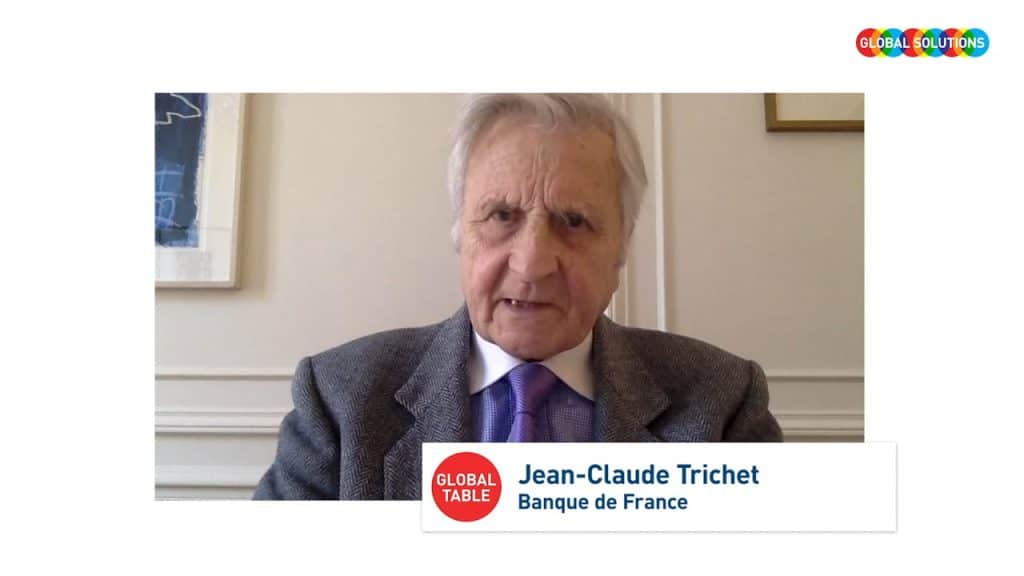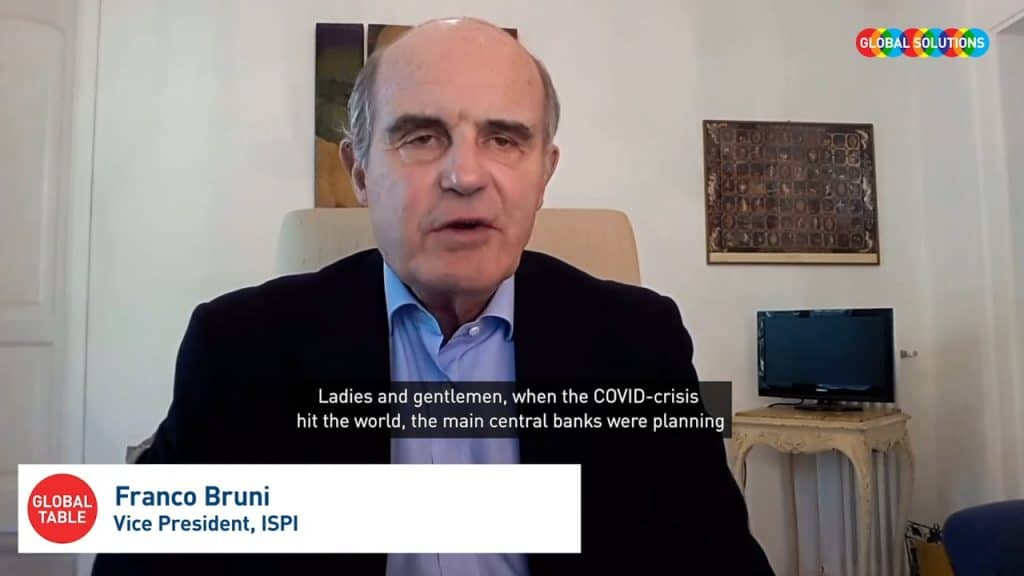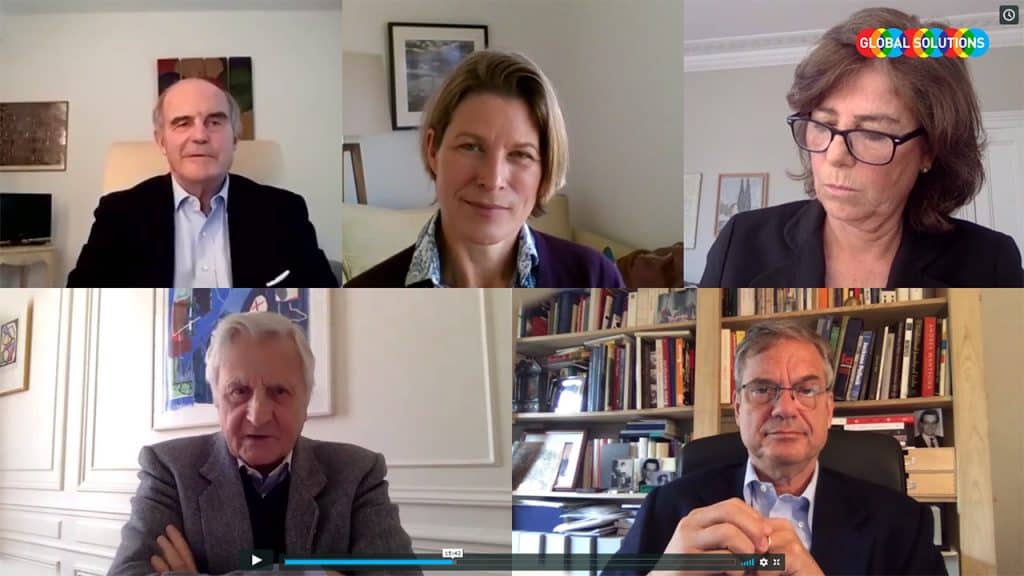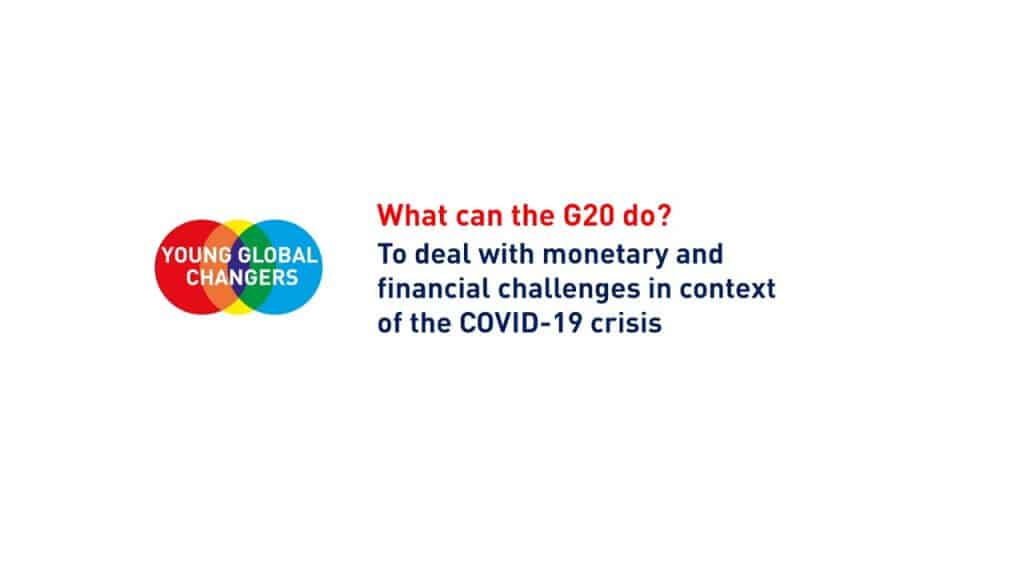Ensuring Progress on SDGs Through Digital Transformation and Financial Inclusion Riatu Mariatul Qibthiyyah - Institute for Economic and Social research, Faculty of Economics and Business, University of Indonesia (LPEM-UI), Cahyo Prihadi - Program Management Office (PMO) of Kartu Prakerja, Romora Edward Sitorus - Program Management Office of Kartu Prakerja, The Coordinating Ministry for Economic Affairs of the Republic of Indonesia, Yogi Pambudi - Project Management
Office of Kartu Prakerja, Guntur Syafiqi Adidarmawan - Project
Management Office of Kartu Prakerja, Hanna Rosuliyana - Project Management
Office of Kartu Prakerja
A Framework for Enhancing International Climate Finance Flows Manish Kumar Shrivastava - Earth Science and Climate Change
Division, Heiner Lupke - DIW, Samantha Keen - Strengthening National Climate Policy
Implementation (SNAPFI) project, Karsten Neuhoff - German Institute for Economic
Research (DIW Berlin), David Rusnok - Strengthening National Climate Policy
Implementation (SNAPFI) project
A Framework to Enhance Financing Capacity and Incentivise Preservation of Natural Assets Alexander Ryota Keeley - Urban Institute, Alin Halimatussadiah - The Institute for Economic and Social Research, Faculty of Economics and Business, Universitas Indonesia, Bambang Brodjonegoro - University of Indonesia, Matthew Agarwala - Bennett Institute for Public Policy, University of Cambridge; Tobin Center for Economic Policy, Yale University, Muhammad Adriansyah - Institute for Economic and Social
Research, Robert Smith - International Institute for Sustainable Development, Robi Kurniawan - SDGs Hub, Roes Ebara Gikami Lufti - Institute for Economic and Social
Research Faculty of Economics and Business, Shunsuke Managi - Urban Institute, Shutaro Takeda - Urban Institute, Teuku Riefky - University of Indonesia (LPEM FEB UI)
A Long-Term Development Investment Framework for LMICs Alin Halimatussadiah - The Institute for Economic and Social Research, Faculty of Economics and Business, Universitas Indonesia, Bambang Brodjonegoro - University of Indonesia, Fukunari Kimura - Keio University, ERIA, Muhammad Adriansyah - Institute for Economic and Social
Research, Muhamad Chatib Basri - University of Indonesia, Teuku Riefky - University of Indonesia (LPEM FEB UI), Wing Thye Woo - University of California
Beyond GDP: Measuring the Value of Wellbeing Krishna Kumar - Research and Information System for Developing Countries (RIS), Pramod Kumar Anand - Research and Information System for Developing Countries (RIS), Arpit Barman - Research and Information System for
Developing Countries, Sameera Altuwaijri - Population and Development, Igor Makarov - Laboratory for Climate Change Economics, Sedat Alataş - Laboratory for Climate Change
Economics, Beena Pandey - Research and Information System for
Developing Countries, Rohit Saini - Research and Information System for Developing
Countries, P. Srinivasa Rao - Research and Information System for Developing
Countries, Basma Altuwaijri - ASBAR Think Tank, Anand Pratap Singh - Gautam Buddha University
Multisectoral Investments in Early Childhood Development for Sustained and Inclusive Economic Growth in India Soumen Bagchi - United Nations Children’s Fund, Hyun Hee Ban - United Nations
Children’s Fund India, T.R. Dilip - International Institute of Population Sciences, Srinivas Goli - International Institute of Population Sciences, K.S. James - International Institute of Population
Sciences, Urvashi Kaushik - Monitoring and Evaluation Specialist, Udaya Shankar Mishra - International Institute of Population Sciences, Subhasree Ray - Reliance Industries
Limited, Shoba Suri - Observer Research Foundation
Fiscal Reform in the Digital Era: Implementation of OECD Pillar One Adrianto Dwi Nugroho - Faculty of Law, Riatu Mariatul Qibthiyyah - Institute for Economic and Social research, Faculty of Economics and Business, University of Indonesia (LPEM-UI), Christine Tjen - Tax Education and Research Center, Faculty of Economics and Business, University of Indonesia, Syahda Sabrina - Institute for Economic and Social Research, Faculty of Economics and Business, University of Indonesia
For an African Stability Mechanism KY Amoako - African Centre for Economic Transformation, Daniel Cohen - Finance for Development Lab, Paris School of Economics, Sebastien Villemot - Finance for Development Lab, Paris School of Economics, Brendan Harnoys-Vannier - Finance for Development Lab, Paris School of Economics
The Role of The IMF in Facilitating Green Energy Transitions Rishikesh Ram Bhandary - Research Fellow, Center for International Environment and Resource Policy, The
Fletcher School, Tufts University, Aasheerwad Dwivedi - Center for Social and Economic Progress (CSEP), New Delhi (India), Daniel Titelman - United Nations Economic Commission for Latin America and the Caribbean, Laveesh Bhandari - Center for Social and Economic Progress (CSEP), New Delhi (India), Noel Perez - Economic Commission for Latin America and the Caribbean (ECLAC), Marilou Uy - Intergovernmental Group of Twenty-Four (G24), Sara Ahmed - The Vulnerable 20 Group, Amar Bhattacharya - Brookings Institution
Strengthening the Global Financial Safety Net Haihong Gao - Institute of World Economics and Politics, Chinese Academy of Social Sciences (CASS), Pavel Trunin - Gaidar Institute for Economic Policy, Sergey Drobyshevsky - GAIDAR Institute for Economic Policy
Resetting the global financial safety net for the Covid-19 recovery Haihong Gao - Institute of World Economics and Politics, Chinese Academy of Social Sciences (CASS), José Antonio - Ocampo School of International and Public Affairs (SIPA), Columbia University, New York (USA), Ulrich Volz - SOAS University of London, William N. Kring - Pardee School of Global Studies, Boston University
Exiting the Covid Global Recession: Policy Proposals Nuno Cassola - CefES University of Milano-Bicocca (Italy); CEMAPRE University of Lisbon (Portugal), Claudio Morana - CefES University of Milano-Bicocca (Italy), Patrizio Tirelli - University of Pavia (Italy); Griffith University, Brisbane (Australia),
Addressing governance in the token tconomy Alejandro Garofali - Pica European Institute of International Studies (EIIS), Stockholm (Sweden), Jonathan Violante - Pica European Institute of International Studies (EIIS), Stockholm (Sweden)
The need for a development-centred climate change policy at the International Monetary Fund Laveesh Bhandari - Center for Social and Economic Progress (CSEP), New Delhi (India), Rishikesh Ram - Bhandary Global Development Policy Center, Boston University (USA), Amar Bhattacharya - Brookings Institution, Kevin P. Gallagher - Global Development Policy Center, Boston University, USA, Toby Melissa C. Monsod - University of the Philippines and Financial Futures Center, Manila (Philippines), Marilou Uy - Intergovernmental Group of Twenty-Four (G24)
Expanding the global financial safety net Kevin P. Gallagher - Global Development Policy Center, Boston University, USA, Haihong Gao - Institute of World Economics and Politics, Chinese Academy of Social Sciences (CASS), Ulrich Volz - SOAS University of London, José Antonio Ocampo - School of International and Public Affairs, Columbia University, William N. Kring - Pardee School of Global Studies, Boston University
Digital Money Is Here: G20 (‘s Thinking) Has To Go Digital, Too José Siaba Serrate - Argentine Council for International Relations CARI, Claude Lopez - Milken Institute, Halit Ünver - Research Institute for Applied Knowledge Processing, University of Ulm, Sergey Drobyshevsky - GAIDAR Institute for Economic Policy, Pavel Trunin - Gaidar Institute for Economic Policy








